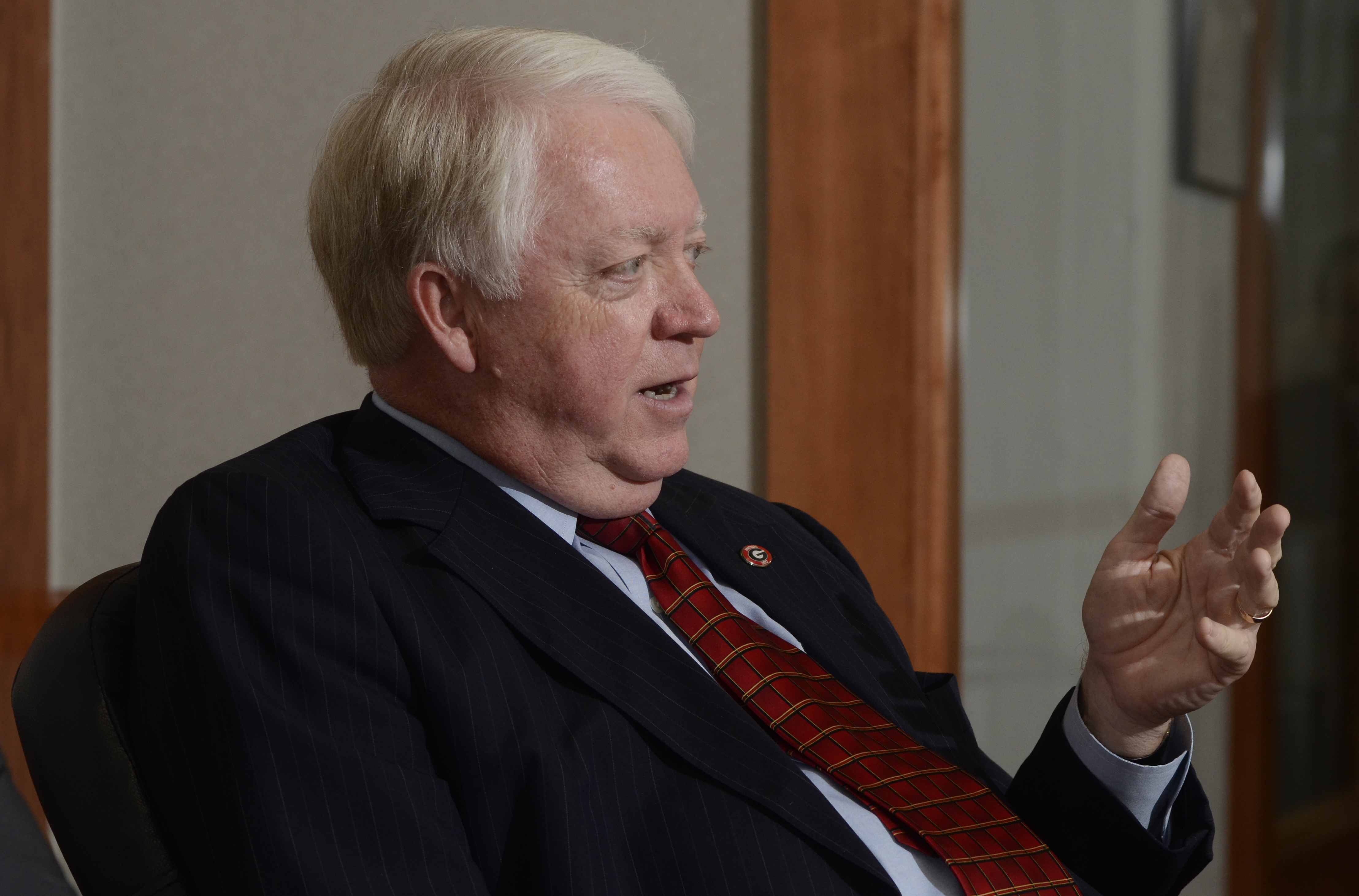Michael Adams looks ahead to life after UGA
Friday, January 1, 1904
University of Georgia President Michael Adams remembers 1973, when he finished his Ph.D., turned 25 and signed a $15,600-a-year contract to teach communications at Ohio State University.
Times change. Four decades later, as the white-haired, highest-paid administrator in the Peach State's public university system, Adams said he makes about $660,000 annually, but that's not all.
Soon after his retirement announcement in May, The Atlanta Journal-Constitution reported the Board of Regents of the University System of Georgia approved a $2.7 million retirement payout for him over five years. In an interview Tuesday, Adams said he plans to earn the money teaching political science and higher education administration at UGA after his presidential duties expire June 30, 2013.
"I never dreamed of making the amount of money I make now," Adams, 64, told reporters and editors at the Chattanooga Times Free Press.
"The regents have been very nice to me," added the onetime aide to former Sen. Howard Baker of Tennessee and 1966 graduate of Chattanooga's City High School.
But Adams has taken heat for his compensation as he presides over tough times. With Georgia facing $108 million in cuts to a university system that's already endured major belt-tightening in the last four budget cycles, some students and legislators have implored Adams to reinvest some or all of the payout money into the university.
Georgia Rep. Bill Hembree, R-Winston, called the retirement package a "golden parachute" and told the AJC "this isn't General Electric or IBM. It's the University of Georgia."
Adams was circumspect about whether he would donate any of the money to UGA, declining to discuss his "donation pattern" to the school in Athens, about 80 miles northeast of Atlanta.
Adams said he and his wife Mary should "be in a position to help."
"There are not many good things that happen in Georgia, especially Athens, that you don't see us involved with," he said.
As Adams tours Georgia, giving media interviews that coincide with the first month of school in his final year at the helm, the 16-year veteran said he wants to be remembered as someone who transformed the state's flagship institution.
Before he hit campus in 1997, Adams said, the school had the reputation of a Southern, regional institution. But in eight of the last 10 years, the school has made the top 20 list of public research universities in America, as ranked by U.S. News & World Report, a leading authority in college rankings.
Improvement at the university came from a mix of administrative prowess and the rise of the HOPE scholarship, which allows Georgia's "best and brightest" to matriculate at home, Adams said.
Still, not everyone gets into UGA, which admitted 6,400 new students this fall.
"I think we turned down 12,000 Georgians this year," he said. "You don't want to be me in April. ... Sometimes those end up being sons and daughters of, you know, state leaders, opinion leaders, legislators, whatever."
Molly Broad, president of the American Council on Education and a former president at the University of North Carolina, said "American higher education is losing a great leader" in Adams.
"Mike is one of these guys who has all the ingredients for success," she said. "He's politically savvy. He's indefatigable. He's willing to take on the tough problems, and he does it with skill but also with determination."
Adams famously dove into several public disputes and was sometimes seen as a meddler. In 2004, he ousted legendary former football coach Vince Dooley from the athletic director position at Georgia. Powerful Bulldogs boosters believed Dooley should have been the one to decide when to step down.
"Mike doesn't shy away from controversy," Broad said.
Georgia's enrollment has increased to more than 35,000 students during Adams' tenure, and the university's endowment has tripled from $249 million to $745 million, according to The Associated Press.
Adams said his successor must carry the financial torch.
"Whoever's next has got to raise money," Adams said. "It's that simple."
